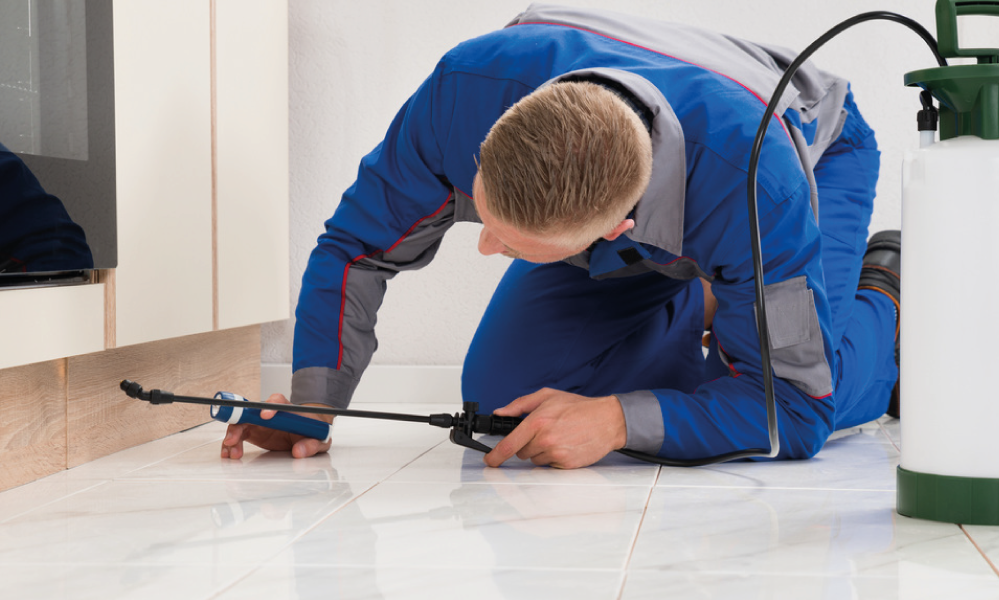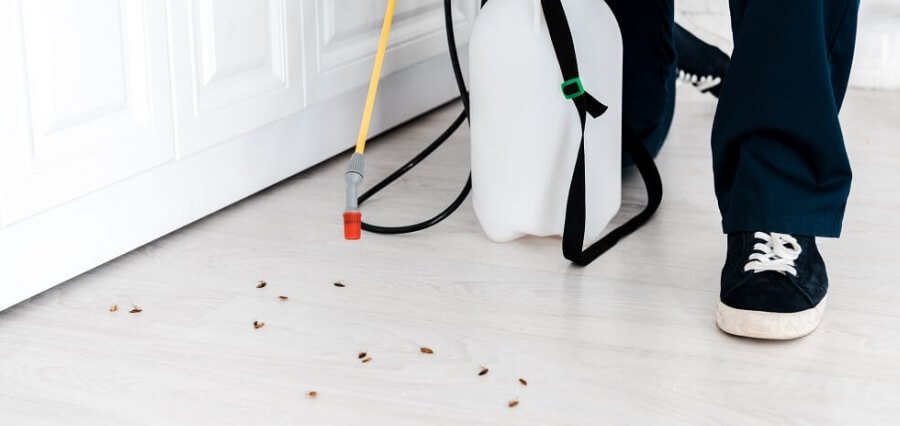Pest Control Clovis: Eliminate Pests Once and for All
Pest Control Clovis: Eliminate Pests Once and for All
Blog Article
Comprehending the Numerous Methods to Bug Control: A Comprehensive Overview

All-natural Bug Control Techniques
Utilizing green techniques such as companion growing and organic bug control is crucial for properly taking care of bugs in farming settings. Companion planting entails expanding various crops in proximity to deter pests, improve nutrient uptake, and enhance overall plant wellness. As an example, planting marigolds alongside tomatoes can aid repel nematodes. Intercropping maize with legumes can interfere with the breeding patterns of pests like corn borers.
Organic insect control entails introducing all-natural predators or virus to control pest populaces. Ladybugs, as an example, feed upon aphids, controlling their numbers without the requirement for chemical pesticides. An additional example is making use of Bacillus thuringiensis (Bt), a bacterium that targets certain insect pests while being harmless to people, animals, and helpful insects.
These environment-friendly approaches not only minimize the dependence on synthetic pesticides however additionally help protect biodiversity and dirt health. By integrating all-natural parasite control techniques into farming practices, farmers can achieve sustainable bug management while reducing unfavorable influence on the environment.

Chemical Insect Control Solutions
Along with all-natural parasite control methods, the usage of chemical insect control options plays a significant role in successfully taking care of pest populaces in farming settings. Chemical pest control solutions are formulated to target details bugs that might create extensive damages to plants. These remedies frequently include synthetic pesticides that are designed to eradicate pests promptly and successfully.
Among the crucial advantages of chemical insect control solutions is their effectiveness in controlling pest problems widespread. Farmers can apply these solutions making use of numerous techniques such as splashing, airing out, or seed treatment to protect their plants from unsafe bugs, weeds, and illness. Additionally, chemical parasite control options are fairly very easy to use and can offer rapid outcomes, aiding farmers safeguard their returns and reduce economic losses.
Nevertheless, it is vital to make use of chemical insect control remedies carefully to minimize prospective adverse influence on the setting, non-target microorganisms, and human health and wellness. Proper application strategies, adherence to security guidelines, and routine monitoring are vital to ensure the accountable use chemical parasite control options in farming methods.
Organic Parasite Control Approaches
Biological pest control approaches leverage natural killers or pathogens to manage pest populaces in farming settings efficiently. One typical biological control method is the introduction of natural enemies, such as ladybugs or parasitical wasps, to target details parasites.
An additional biological control approach entails utilizing microorganisms like fungi, germs, or viruses to contaminate and kill parasites. In general, organic insect control techniques provide a lasting and targeted solution to pest administration in farming.
Integrated Pest Administration (IPM)
Integrated Parasite Management (IPM) is a thorough method that combines different parasite control techniques to properly manage and reduce pest populaces in farming systems. IPM concentrates on long-term prevention of bugs through a mix of organic, social, physical, and chemical control approaches. By integrating these different methods, IPM aims to minimize dependence on chemical pesticides, decrease environmental impact, and advertise sustainable bug management methods.
One secret element of IPM is the use of biological controls such as natural predators, parasites, and microorganisms to control bug populaces. This approach takes advantage of the power of nature to keep an equilibrium in between pests and their natural enemies without causing harm to the environment.
Additionally, IPM involves social practices like plant hygiene, environment, and turning manipulation to create negative problems for parasites and interrupt about his their life cycles. Physical controls such as obstacles, mulches, and catches are also utilized to stop parasite invasions.
Physical and mechanical Insect Control Techniques
Making use of non-chemical techniques, such as mechanical and physical pest control techniques, is an essential element of thorough parasite administration strategies, constructing upon the foundation of Integrated Pest Monitoring's alternative approach. Mechanical bug control includes the usage of physical obstacles or catches to avoid insects from accessing and harming crops or frameworks. This method can consist of methods like installing displays on home windows, utilizing row covers in farming, or utilizing sticky catches to catch bugs.
Physical pest control techniques, on the other hand, concentrate on straight eliminating bugs through physical ways. For example, utilizing warmth treatments to remove bed insects or vacuuming up pests like ants or spiders can be reliable ways to handle problems without the use of chemicals. By integrating these physical and mechanical pest control methods right into an Integrated Insect Administration strategy, specialists and people can reduce reliance on pesticides while still successfully managing pest populations and decreasing damages.
Verdict

In addition to all-natural insect control approaches, the usage of chemical pest control options plays a significant Going Here duty in efficiently managing pest populaces in agricultural settings.One of the essential benefits of chemical pest control options is their effectiveness in managing pest invasions on a huge scale.Integrated Parasite Monitoring (IPM) is a detailed approach that integrates numerous pest control methods to effectively handle and decrease pest populations in agricultural systems.Making use of non-chemical methods, such as physical and mechanical pest control methods, is an essential element of thorough insect administration approaches, building upon the foundation of Integrated Bug Monitoring's holistic method. By integrating these mechanical and physical insect control techniques into an Integrated Insect Administration strategy, professionals and individuals can decrease reliance on pesticides while still successfully lessening and taking care of pest populaces damages.
Report this page